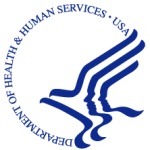- Industry: Government
- Number of terms: 33950
- Number of blossaries: 0
- Company Profile:
United States Department of Health and Human Services, Radiation Emergency Medical Management
The removal of a tissue sample with a wide needle for examination under a microscope. Also called core biopsy.
Industry:Health care
The use of illegal drugs or the use of prescription or over-the-counter drugs for purposes other than those for which they are meant to be used, or in large amounts. Drug abuse may lead to social, physical, emotional, and job-related problems.
Industry:Health care
A type of radiation therapy that uses a machine to aim high-energy rays at the cancer from outside of the body. Also called external radiation therapy.
Industry:Health care
An herb with a root that has been used in some cultures to treat certain medical problems. It may have anticancer effects.
Industry:Health care
A drug that is used in the treatment of acne and psoriasis and is being studied in cancer prevention. It is a type of retinoid. Also called 13-cis retinoic acid.
Industry:Health care
A protein that helps control several cell functions, including cell division and survival, and binds to rapamycin and other drugs. Mammalian target of rapamycin may be more active in some types of cancer cells than it is in normal cells. Blocking mammalian target of rapamycin may cause the cancer cells to die. It is a type of serine/threonine protein kinase. Also called mTOR.
Industry:Health care
A type of immune cell that is made in the bone marrow and travels through the blood to tissues in the body where it becomes a macrophage. Macrophages surround and kill microorganisms, ingest foreign material, remove dead cells, and boost immune responses. A monocyte is a type of white blood cell and a type of phagocyte.
Industry:Health care
A type of study in which individuals are observed or certain outcomes are measured. No attempt is made to affect the outcome (for example, no treatment is given).
Industry:Health care
A bushy herb that is a member of the mint family. A strong-smelling oil taken from the leaves is used in perfumes, incense, detergents, and hair conditioners. It has been used in some cultures to prevent disease. The scientific name is Pogostemon cablin
Industry:Health care
